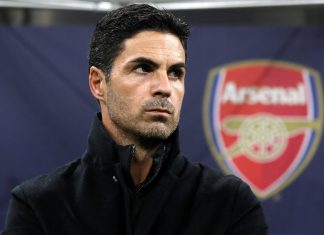Cesc Fabregas once revealed that Wenger rarely discusses the strengths and weaknesses of opponents, and that appears one of his biggest problems right now. There was a time when Wenger’s ‘only think about Arsenal’ approach worked well. That was because Arsenal had the best players and if they played to their maximum level, they would dominate games to the extent that tactically analysis of the opposition simply did not matter.
Now things are different. You have teams like Swansea, Everton and Aston Villa who try and pass the ball around too. Once it was only really Arsenal who had the technically gifted players who could pass endlessly around their opponents. Now most teams in the league do exactly that.
For Wenger, he seems to be struggling to come to terms with that. Once he was ahead, and that was because he was a visionary in terms of the way the game should be played. Now Barcelona have shown just how far that style can take you, teams have rushed to copy them. The idea of there being a Swansea in the Premier League in years gone past, in other words, another version of Arsenal, was far fetched.
Organisationally, Wenger does not seem to be keeping pace with his rivals. Managers like Brendan Rodgers, Roberto Mancini and Paul Lambert pay attention to the slightest details, and that helps them overcome their opponents. On Saturday, you saw Swansea beat Arsenal in large part because they realised that key to Wenger’s team was the width offered from full backs. You saw Swansea constantly showing Kieran Gibbs and Carl Jenkinson inside, and never letting them get out wide. And it was from forcing Jenkinson inside that they forced a mistake from him and the decisive second goal. It is hard to imagine Wenger finding a key tactical area to exploit in an opponent the same way. Arsenal continue to play in the same static tactical system regardless of the opponent. Where Mancini or Rodgers may change their formation if things are not working, Wenger sticks stubbornly to his system. Sir Alex Ferguson is still at the top because he can adjust and adapt to changing times. Wenger does not appear able to do that.
Yet possibly the biggest problem for Wenger is that his team are not even doing the things he is usually so good at drumming into his players. The Arsenal side of his early years were full of pace and movement. Now those qualities are missing. They appear ponderous on the ball, taking two, three or four touches before passing, whereas in the past most of their good play was one touch stuff. One of the reasons they are taking more touches is because when Jack Wilshere, Mikel Arteta or Santi Cazorla look up, they see few options.
The forwards are not making runs, dragging defenders away and from side to side. To create space, and to find players making runs in behind, you have to have players running in different directions, constantly moving to where there is space. When you have three forwards as Arsenal do, all making runs into space, the other defence is constantly having to work out where to move to next, as they are being forced to move into the same spaces as the opposition’s players. When that happens, other gaps appear, and runners from midfield can get in behind a defence. That was key to Arsenal’s thrilling play of the early Wenger years. That seems a long time ago now. Arsenal’s players appear to have forgotten that it is not just about receiving the ball and doing something with it. It is also about distracting the defenders with movements that take their attention away from the man in possession. It is so easy for opponents against Arsenal at the moment as they have few players making distracting runs, so their attention is focused almost entirely on the man in possession.
So when Wenger does go, who will replace him? A huge void would be left, in terms of a brain which can recruit the brightest talents from across the world, help balance the budget and find the right manager to succeed the Frenchman. It makes you wonder whether it would be a good idea to send Wenger into a director of football role, where his football instincts and eye for talent would be best utilised. But Arsenal possibly need a manager, with the same philosophy and ideas as Wenger, but with more tactical and organisational nous. A Pep Guardiola. Wenger knows the Spaniard well. If he could convince him to take his place at the Emirates, then he would continue to ensure that his remarkable legacy continues on for many years to come.







